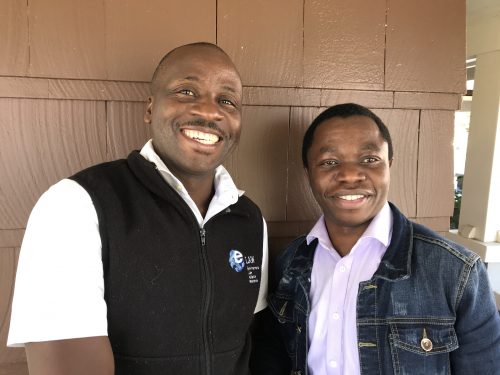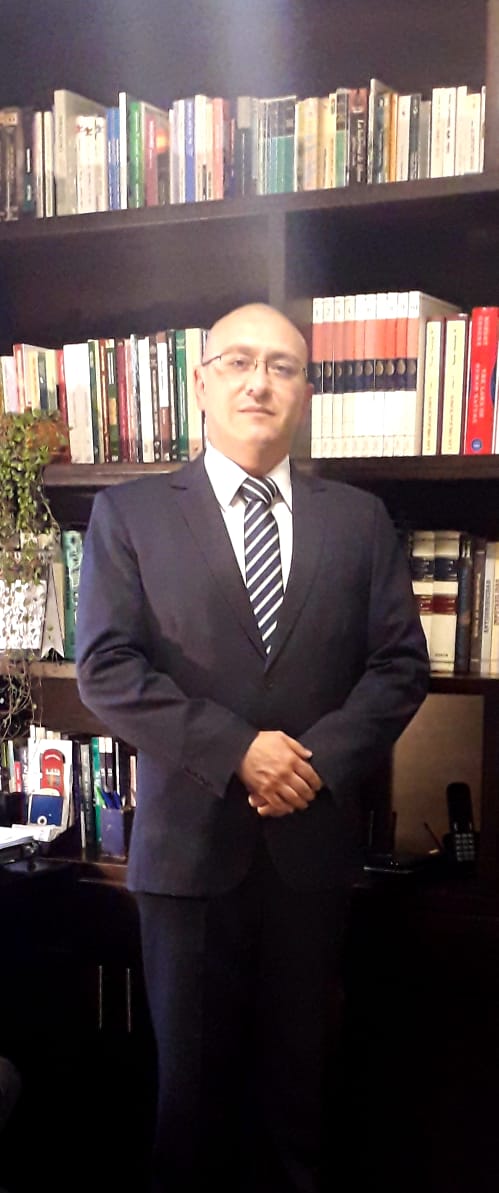
Olivier Ndoole wants to challenge oil exploitation and share his advocacy with local communities in the Democratic Republic of the Congo (DRC), where he lives.
Lawyers and educators from around the globe come together to work with the Environmental Law Alliance Worldwide on environmental concerns affecting communities. But this year, the 38th annual Public Interest Environmental Law Conference where the ELAW fellows were going to present was canceled in early March due to concerns over the swiftly spreading novel coronavirus.
Ndoole is an ELAW fellow, and is the executive secretary at Congolese Alert for the Environment and Human Rights located in the DRC. By working not only with ELAW but also the University of Oregon and the American English Institute (AEI), he has been able to advocate on an international level.
ELAW began in 1989 with public interest lawyers from 10 different countries, and has now hosted nearly 200 environmental lawyers and professionals. Fellows gain skills, inspiration, ideas and support, which they then transfer the knowledge they’ve gained to the organizations and communities they are working with, according to the environmental group.
Ndoole’s own organization works with, “disadvantaged communities subjected to violence and human rights abuses tied to illegal exploitation of natural resources and wildlife trafficking in and around Virunga National Park,” Maggie Keenan says.
Keenan oversees the ELAW fellows program. The fellow program has grown to more than 190 environmental professionals from around the globe.
Dickens Kamugisha is the CEO of Africa Institute for Energy Governance (AFIEGO) as well as an advocate in Uganda’s high court.
“ELAW brings different global groups together to make differences and have global solutions. We need to work with international groups beyond our borders,” Kamugisha says.
“Oil exploration began in Uganda in the 1990s,” Kamugisha says. “Since then, British, Chinese and French companies have signed production licenses with our government to commence oil exploitation. This threatens community lands and livelihoods, as well as Murchison Falls National Park, the River Nile, Queen Elizabeth National Park, Budongo Forest and other critical biodiversity.”
Although Kamugisha and Ndoole had not met each other in Africa, only when they came to Eugene, their countries border each other and many of the issues they are working on such as the oil and gas projects affect not only communities but animal species such as the mountain gorillas on both sides of the border in the national parks. The men plan to meet in Kampala, Uganda, and fight together for the communities and the animals.
Hugo Echeverría, another ELAW fellow, presented information to ELAW and other fellows in Eugene on the exploitation of nature in Ecuador. Echeverría is a lawyer and professor at the University of San Francisco in Quito. He is also a member of the United Nations Knowledge Network on Harmony with Nature.
“Ecuador is the first and only country whose constitution recognizes the Rights to Nature. So, being part of this network [ELAW] has helped me to get into contact with people and organizations working locally on a variety of issues related to the enforcement of the Rights of Nature,” Echeverría says.
In 2008, Ecuador became the first country in the world to recognize the Rights of Nature in its constitution. Since the declaration, the Rights of Nature has been upheld by three dozen court rulings that invoke the Rights of Nature to stop projects that would be detrimental to the earth and species.
An overwhelming margin of the population voted for the new Constitution to recognize legally the Rights of Nature, which says nature “has the right to exist, persist, maintain and regenerate its vital cycles, structure, functions and its processes in evolution.”
“By preserving the environment in Ecuador, indigenous groups are respected and their values are not lost,” Echeverría says.
Echeverría says his goal, like Ndoole and Kamugisha, is by participating in the ELAW fellowship, he can help educate people beyond the scope of ELAW and create a better world for all.
All fellows made it home by March 14 and ELAW’s plans to host fellows this spring have been postponed due to the COVID-19 breakout. Until more information is brought forward about the coronavirus, ELAW fellows are in a waiting game, says Keenan.
Environmental Law Alliance Worldwide (ELAW) Fellows program includes Olivier Ndoole, Dickens Kamugisha, Hugo Echeverría and more. For more information about ELAW, please visit, ELAW.org or call at 541-687-8454.
